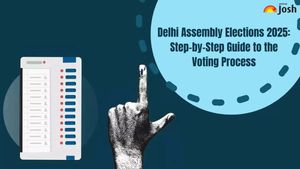Werdohl local government has found itself at the center of turmoil following the suspension of councilwoman Stefanie Starbatty, who has been at odds with her political party, the SPD (Social Democratic Party). Starbatty is facing significant repercussions due to her habitual absence from meetings, and issues have arisen surrounding her membership dues.
Shortly after the New Year, the SPD announced the termination of Starbatty's membership, citing her failure to pay dues. This decision followed months of attendance issues, wherein she missed numerous council and committee meetings. The situation escalated when she was deprived of allowances, which she alleges came as a shock.
Starbatty vehemently denies having knowledge of her dues being overdue, attributing her past non-attendance to communication failures with the party. "I only learned about the payment issues on the day I received notice of my membership termination," she wrote, asserting the SPD's claims were unfounded. Here, she indirectly accused her former party of deception.
Responding to Starbatty's rebuttal, Marion Gierse, the SPD faction's leader, clarified the circumstances surrounding Starbatty's exclusion. "The dismissal was not purely based on attendance but also her persistent disregard of payment notifications," she stated. Gierse confirmed Starbatty had received several reminders about her dues, emphasizing the SPD's adherence to their financial regulations.
Complications arose due to Starbatty's sporadic engagement with the party; records revealed she attended only 18% of faction meetings last year. This low participation level raised concerns not only within the SPD but also among members of the public, prompting questions about her commitment to her political responsibilities.
While Starbatty contends she participated actively when possible, Gierse responded insisting the issues with dues were more indicative of broader engagement troubles rather than simple miscommunication. She affirmed, "I have ensured all information was communicated to Starbatty through various channels, including direct invitations to every faction meeting. If emails failed to reach her, I took the step to notify her via WhatsApp." This response highlights the contentious relationship between Starbatty and the SPD during recent months.
Additional complexity was added when it emerged Starbatty had continued attending some SPD faction meetings even after the suspension of her allowances, indicating her willingness to engage politically, albeit irregularly. Despite this, it seems her role has now changed; since January she has been classified as fraktionslos, or without faction, and has not attended council meetings since February.
Speculation surrounding whether Starbatty intends to drop her council seat continues, yet the city administration has stated they have not received any formal indication of her resignation. Without such notice, the SPD cannot re-appoint another candidate to her seat, as her position remains entrenched by the complication of her absent status.
The situation reflects both the challenges present within local governance and the pressures party affiliations can impose on elected officials. Starbatty’s case raises broader concerns about participation and accountability at the municipal level, particularly relating to how political dynamics can affect public representation.
Moving forward, the story of Stefanie Starbatty serves as a poignant reminder of the inherent challenges individuals may encounter within political structures, particularly when commitment wavers. The conflict with her former party, alongside her tumultuous record, casts uncertainty on her future as both councilwoman and party member. One thing is clear: the repercussions of her choices will resonate within Werdohl's local governance for some time to come.



